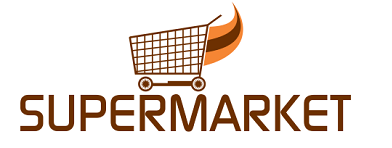People need money for different purposes. Banks know that, so they have a diverse range of financial tools to meet their needs. These are various methods to borrow money. But apart from the purpose, these financial arrangements are made so that the lender also has a profit and protection from any risk.

Common bank products are unsecured and secured loans. As their names tell them, they require some guarantee or not. Banks generally grant unsecured deals to applicants with high creditworthiness. Those with a worse credit score or high DTI can apply for secured loans. These arrangements have slightly stricter requirements, and you can get them provided you pledge something as a repayment guarantee.There are many benefits to unsecured loans. First, forbrukslån på dagen are a lower-risk option for borrowers and may be easier to arrange than secured loans. This type of borrowing from a lender is often more straightforward legally, too. And as there’s no collateral, there’s no need for additional papers that only complicates the procedure.
Are You Eligible?
The question, ‘Who is eligible to borrow money with no collateral?’ can be a tricky one to answer. It depends on a lot of factors, including your credit score. If you don’t have an excellent credit score, you may not be approved for an unsecured loan. You might even get denied if you don’t have much credit score.
So the first requirement is to have a healthy credit score to borrow as much money as you need. It means no late or missed payments, overspending, and too many inactive accounts. And with an excellent credit score, you may qualify for lending arrangement under favorable terms.
These loans are a good option for consumers who need money for unexpected events or personal needs. Also, these arrangements are available for those who don’t have much liquidity. Some lenders might be more tolerant in these cases but under certain conditions. For example, they may ask for additional documentation or a co-signer.
Another option if your credit score is bad is a secured loan, i.e., pledging some of your stuff. But you should remember that lenders are more likely to repossess your property if you default on paying installments on time. So that’s not a risk everyone can and should take.
Fewer Risks
Unsecured loans are a great way to get extra money without collateral. They are typically easier to take if you have a good credit score and a steady income. In addition, these deals don’t ask for collateral or other assets, so they carry little to no risks for borrowers if they repay their installments on time.
While unsecured loans are less risky for borrowers, the risk involved with failing to repay them is still considerable. A default can severely damage a borrower’s credit, leaving negative marks on credit reports that can last up to seven years. Because of this risk, lenders typically charge a higher interest rate and origination costs.
Unsecured loans are less risky for borrowers but may be harder to qualify for. On the other hand, arrangements with collateral are safer for lenders, so they are more likely to approve you. These loans are helpful for those with bad or no credit history. The lenders need assurance (collateral) that they are not gambling with their money if you default on payments. And because of their lower risk, these arrangements usually come with lower interest rates.
How about the Lenders’ rRisks?
The major disadvantage of unsecured loans include a greater risk for lenders. Since banks and private lenders have no recourse if the borrower defaults on debt repayment, they may not be able to get their money back. That’s the primary reason behind rigid approval and high-interest rates on these arrangements.
More Flexibility
The benefits of unsecured loans are apparent: the borrower doesn’t have to pledge any asset as collateral. That makes them ideal for individuals and small business owners looking to raise smaller amounts of money. This method of borrowing can be suitable for almost every situation, but you still have to consider your needs and abilities when applying.
When your credit history is immaculate, you can make loan offers even more affordable. Lenders can customize their products according to your requirements. Depending on your needs and financial standings, banks are willing to negotiate lower interest rates or shorter/prolonged repayment periods.
Shorter repayment means you can settle your debts quickly and remove this burden off your back. Of course, you will have to pay a higher interest rate on these loans because of their shorter tenor. But that can be a good option for smaller borrowing amounts.
Another advantage of unsecured loans is that you can pay them off early without facing any penalty fees. You can also set your repayment terms for any particular date, allowing you to make top-up payments or even repayment holidays. You should discuss these options with your lender before applying.
Negotiate Lending Terms
You can negotiate lending terms if you’re a good credit borrower. You can discuss the interest rates, tenure, processing fees, prepayment charges, annual fees, and commissions. That will help you not overpay for the amount you’ve borrowed.
Always keep in mind that banks earn over and above interest. But they can make some exceptions if your creditworthiness is excellent. Of course, interest is the primary consideration, but other factors can also be negotiated.
Make sure you match security arrangements and repayment schedules to your cash flow. Talk about possible restrictions and methods to avoid excessive fees. Also, make sure to read the lender’s terms and conditions before signing anything. Negotiating terms of unsecured loans is a smart way to save money and get the best deal.
Some arrangement with long repayment period might seem reasonable, but they can be risky for your financial stability in the long run. Plus, you may end up paying a high total interest cost over the life of the loan. That means you should be proactive and do your homework before negotiating more favorable terms.
Fast and Simple Application
Digitalization has made loan application procedures easy. Most lenders offer online application and pre-approval forms, so you can get everything done fast, usually within two to three business days. Sometimes, getting approval and money in your bank account is possible on the same day.
Unsecured loans are typically given out based on your income and expense behavior. Lenders will need some basic information. They often offer higher interest rates than secured loans and have shorter repayment terms.
However, the approval process for an unsecured loan is sometimes stricter than for secured arrangements. Not everyone can qualify for it, so lenders check all applicants in detail. They can deny applications for many reasons, most of which are justified. So, check out the terms and conditions carefully to avoid a letter of denial.
Unsecured loans might be hard to get, but they don’t require paying fees upfront. Sure, lenders will typically charge higher interest rates, but this option may be ideal for those who don’t want to take a high risk on their finances. And once you borrow money from a bank or credit union, you can use it for just about any purpose.


